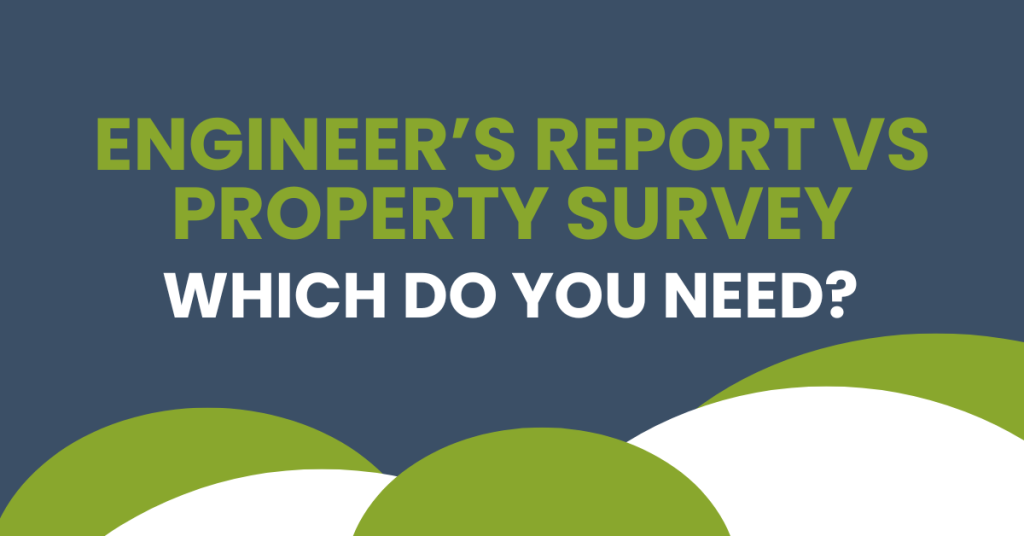
When buying or renovating a home, you may need an engineer’s report or a property survey. But which one is right for you? Many Irish homeowners are unsure of the difference, leading to unnecessary costs or missed structural issues. Understanding the differences can help you make the best choice for your property.
What is an engineer’s report?
An engineer’s report is a focused assessment of a specific issue in a property. It is usually requested when:
- A structural defect is suspected (e.g., cracks, subsidence, roof issues).
- A mortgage lender requires a structural inspection.
- You need confirmation of compliance with building regulations.
- You are addressing legal or insurance concerns.
A chartered engineer inspects the property and provides a formal report outlining the issue, its severity, and possible solutions. This report is not a full survey but a targeted assessment.
When should you get an engineer’s report?
- Cracks in walls? An engineer’s report determines if they’re structural.
- Roof sagging? A report assesses potential weaknesses.
- Drainage problems? Engineers can investigate structural causes.
If you only need advice on one issue, an engineer’s report is a cost-effective choice.
What is a property survey?
A property survey (also known as a structural survey) is a comprehensive property inspection. It examines the entire building, identifying defects and maintenance issues. A chartered surveyor carries out this in-depth inspection.
What does a property survey cover?
- Structural integrity – Walls, floors, foundations, and roof.
- Damp and mould – Identifies potential causes.
- Insulation and ventilation – Checks for heat loss and energy efficiency.
- Roof and drainage – Assesses condition and future maintenance.
- Windows and doors – Note any signs of decay or damage.
- Electrical and plumbing – Inspects visible installations.
When should you get a property survey?
- Buying an older or unmodernised property.
- Purchasing a house with visible defects.
- Planning renovations or extensions.
- Selling a home and want to identify issues.
A property survey provides a full overview of the property’s condition, making it ideal for buyers and owners planning major works.
Engineer’s report vs property survey: key differences
| Feature | Engineer’s Report | Property Survey |
| Purpose | Assesses a specific issue | Comprehensive inspection of the entire property |
| Who Carries It Out? | Chartered engineer | Chartered surveyor |
| Scope | Focused on one concern (e.g., cracks, roof, drainage) | Full structural and condition assessment |
| Best For | Structural concerns, mortgage requirements | Buying, selling, or maintaining a home |
| Cost | Lower | Higher (due to depth of inspection) |
Understanding an engineer’s report vs a property survey can help you choose the right option, saving time and money.
Which one do you need?
Get an engineer’s report if you:
– Have a specific concern about structural integrity.
– Need to satisfy a mortgage lender or insurer.
– Require a compliance certificate.
Get a building survey if you:
– Want a full inspection before buying or renovating?
– Need detailed maintenance advice.
– Are investing in an older or listed building.
If you’re unsure, a property surveyor can advise on the best choice for your situation.
Book a professional property survey
Whether you need an engineer’s report or a property survey, expert advice is essential. Our experienced surveyors can assess your property and provide the necessary reports for peace of mind.
